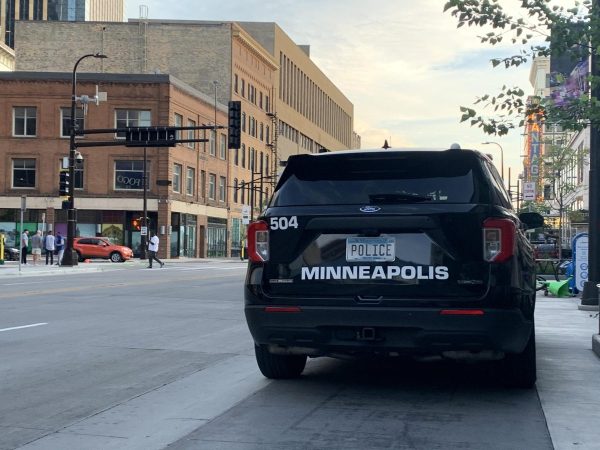At 4 a.m., a student from Hamline received a knock at the door and an email from his stalker asking to spend time with him.
He would receive emails from his stalker asking when he would be at his dorm and to open the door, all while lurking in the hallway, but Robert he is not the only student who has experienced stalking.
The University of Minnesota had 39 cases of stalking on and around campus reported since fall 2023, according to the University’s daily crime log. Hamline University reported 11 incidents of stalking on campus since fall 2023, according to Hamline’s daily crime log.
Robert, a Hamline student who will only be referred to by his first name out of respect for his privacy, said in an email interview he would receive around five to 10 emails a day from his stalker asking where he was and when he would be back. Robert and his stalker shared a class and dorm building.
“I looked through the peephole and saw it was the girl who lived a few doors down from me in my hall,” Robert wrote in the email. “She continued lurking around the hallway, going in and out of the boys’ bathroom (which my dorm was right next to) and knocking on my door, telling me to let her in.”
In Minnesota, around 33% of women and 25% of men report stalking, sexual violence or physical violence by a partner in their life, according to 2020 data from the National Coalition Against Domestic Violence.
Robert said the emails began two weeks before the start of the 2024 spring semester and lasted until he contacted Hamline’s Public Safety Department a few weeks later.
Director of Public Safety at Hamline University Illiana Cantu Delgado said because stalking is so outside of the norm for many students, reporting it is usually the hardest. Cantu Delgado said although every case is different, she always creates a timeline with students of when and how the harassment started.
“It’s hard to even talk about it because it seems almost normal not to talk about it, but that’s the exact opposite,” Cantu Delgado said. “You need to talk about it.”
After meeting with Cantu Delgado, Robert said two public safety officers helped him move to a different dorm building. He added he never responded to the emails and distanced himself from the student.
“The only thing I could remember her from is that she was in one of my classes, but she only showed up twice to that class during the entire semester so I never even really saw her there,” Robert said. “It was all just out of the blue.”
At the University, students are encouraged to report stalking to Equal Opportunity and Title IX, University Spokesperson Katie Ousley said in an email. Students can also contact the Aurora Center for confidential advocacy services.
The Aurora Center shows students what steps to take next. Students have the right to an advisor or support person during their formal investigation and can file a police report to the University police.
Ousley said other resources for students include the RAVE Guardian app and 624-WALK service when out walking alone. 911 is another option if they feel in danger.
Cantu Delgado said students have multiple options for how to approach their safety. Whether it is having someone to walk with to their car or dorm, filing a restraining order, or going to court, the department will support the students the entire time.
“We will support them the whole way,” Cantu Delgado said. “If they decide that they don’t want to go through with it because it’s a lot, that’s okay. You don’t have to. You have to do what’s right for you.”
Robert said as he received more help and support from Cantu Delgado and St. Paul Police, he felt more comfortable getting a restraining order. Robert said Cantu Delgado texted him every day to check in until the student was evicted and the restraining order was finalized in February.
Ousley said the University also has mental health services at Boynton Health and Student Counseling Services. Boynton Health offers emergency walk-in services through its crisis hotline and other services such as group or individual therapy.
Cantu Delgado said even if a non-student needs help, the Hamline Public Safety Department is there for them too. She added if someone is experiencing harassment or witnessing it, the most important thing is to tell someone right away.
“If I had a big message to give to anybody, it would be that you see something, you see something,” Cantu Delgado said. “You can tell for somebody else, say something to somebody.”
Correction: A previous version of this article misstated where students should go to report stalking. Students should report stalking to Equal Opportunity and Title IX services.















Ken DeYoe
Jun 24, 2024 at 10:37 am
I’m curious as to the number of stalking incidents where the stalker wasn’t a student. They would present different and larger problems for the U to handle.